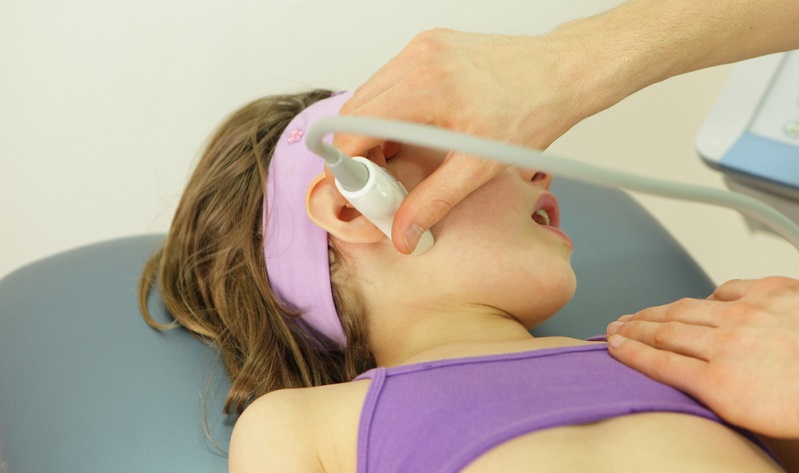Bruxism in Children: Why Do Kids Grinding Teeth While Sleeping?
Contents

It is understandable to be concerned if you notice your child grinding their teeth while sleeping. This is known as sleep bruxism.
Teeth grinding or clenching may be an automatic reaction to stress and worry. Adults and toddlers alike may grind their teeth while sleeping without even realizing it.
Bruxism is not considered dangerous in and of itself, but repeated teeth grinding or clenching can cause jaw pain and tooth damage over time.
We look at the causes and hazards of sleep bruxism in children, as well as potential prevention techniques.
Depending on the frequency of the behaviour, the intensity of the grinding, and the underlying causes of the grinding, bruxism can produce a variety of dental problems.
Children may fall prey to bruxism due to a variety of psychological, physiological, and physical causes.
Bruxism is thought to be caused by several factors, including jaw misalignment (poor bite), stress, and traumatic brain injury, while it can also be caused by some drugs.
What Exactly is Bruxism?
Teeth grinding, also known as bruxism, is the deliberate or unintentional grinding or clenching of teeth. It is more common in children.
Approximately 20% to 30% of children grind their teeth when sleeping. You might have overheard your youngster doing it late at night.
When children are stressed, they may grind their teeth during the day. The good news is that most children will stop grinding their teeth eventually.
This frequently occurs around the time kids lose their baby teeth.
What Causes Bruxism in Children?
Dentists aren't always sure what causes teeth grinding. Children with hyperactivity disorders or health difficulties, such as cerebral palsy, are more likely to have bruxism.
Certain medications can also contribute to it. Some children grind their teeth because their teeth are not correctly aligned.
It may be related to daily stress in older children or adults. Many factors can influence whether or not it causes symptoms.
These are some examples:
- The level of anxiety
- How hard and how long do you grind or clench your teeth Your ability to relax
- Your sleeping patterns
- If your teeth are misaligned
Is it Possible to Prevent or Avoid Bruxism in Children?
Many children's bruxism is a natural response to growth and development.
These incidents are unavoidable. Stress-related teeth grinding, however, can be prevented in both children and adults.
The first step you may take to avoid teeth grinding is to establish a soothing bedtime routine.
Assist your youngster in falling asleep:
- Limit your exposure to television and devices for many hours before going to bed.
- Play soothing music for them to listen to.
- Give them a warm bath or shower.
- Allow them to read or listen to you read as you read.
- Stress reduction is critical.
Talk to your youngster about their feelings frequently. Assist them in dealing with stress.
Take steps to lessen stress in your life if you have bruxism.
Why Do Kids Grind Their Teeth?
Children aged 7 to 10 are the most vulnerable.
More than 2 million healthcare providers worldwide use UpToDate to help them make better care decisions and achieve better health outcomes.
UpToDate provides evidence-based clinical decision assistance that is simple, actionable, and full of real-world examples.
Infants:
- Bruxism can occur in babies as soon as their teeth appear, and it has been observed in children aged one year and under.
- Infants may engage in bruxism to alleviate teething discomfort.
- Chronic oral habits such as teeth grinding during childhood are unlikely to create long-term health problems, although they may cause infants to stop breastfeeding early.
- Stress and separation anxiety in toddlers, according to research Biotech Information from the National Library of Medicine, The National Centre for Biotechnology Information enhances science and health by making biomedical and genetic data available.
- Teeth grinding throughout infancy and toddlerhood is unlikely to alter the structural integrity of adult teeth.
Children of School Age:
Teeth grinding can appear or reappear in youngsters when they lose their baby teeth and grow into their permanent set.
According to research, youngsters may unconsciously release daytime tension and stress by grinding their teeth at night.
How Can Bruxism Damage a Child’s Teeth?
Symptom: Bruxism involves grinding the upper jaw against the lower jaw.
Effects: This can cause moderate to severe jaw discomfort, headaches, and ear pain, especially with vigorous grinding.
Detection:
- Children may be unaware of overnight grinding.
- Pediatric dentists can identify bruxism by examining the teeth.
Indicators:
- Chronic grinding often leads to excessive wear patterns on teeth.
- Misaligned jaws can cause specific areas of tooth enamel to wear down.
Potential Damage:
- Increased risk of chipped teeth, facial pain, gum injury, and temperature sensitivity.
- Severe cases may lead to early development of temporomandibular joint (TMJ) disease.
How to Treat Bruxism in Children?
Most children stop grinding their teeth by age thirteen. Pediatric dentists monitor the impact of bruxism and may recommend interventions based on the cause.
For severely misaligned teeth, corrective actions may include crowns and occlusal therapy. If stress exacerbates bruxism, recommendations might include relaxation classes, professional counselling, or special exercises. Muscle relaxants may also be prescribed to ease jaw clenching and reduce spasms.
In cases of severe damage, nightly dental appliances like mouth guards may be recommended to protect teeth. These devices, along with bite splints or bite plates, prevent tooth surfaces from grinding and are effective in reducing injury.
Contact your pediatric dentist with any questions or concerns about bruxism or teeth grinding.


